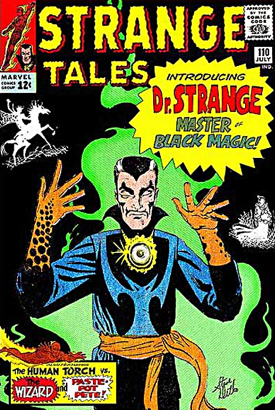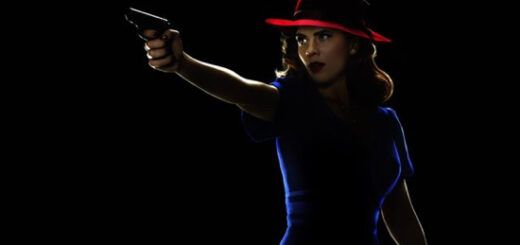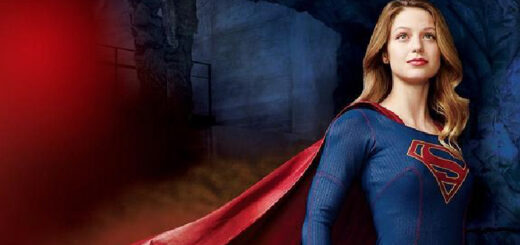Before I get started on this week’s musings, here are a couple of housekeeping items:
1) Have I mentioned lately how great the other writers here at ComicMix are? It’s probably been awhile, so let me take a quick minute to do so (again). If you somehow found ComicMix via me and primarily read my column here on the site, a) Cool, thanks! and b) I highly recommend you give the other folks here a try. Even in just reading through the last few days of columns, from Mindy Newell’s thoughts on Battlestar Galactica to Marc Alan Fishman’s discussion of guarding one’s creative integrity versus going for a payday and wider success, to Molly Jackson’s rejoicing over the awesomeness that is Agent Carter, I am reminded of how quality the folks who write for this site are, and how lucky I am to be amongst them. Anyone reading this site probably knows that already; but just in case you’ve missed out – check out my fellow columnists. You won’t regret it.
2) Speaking of Agent Carter (and I wholeheartedly agree with your column, Molly), I mentioned previously that I’ve recently taken over the duties of co-hosting (with Cleolinda Jones) a long-running podcast, Made of Fail, which is all about geek culture and properties. It’s taken a little while for us to get our first solo-hosted podcast in the can, but we’ve finally recorded Episode 76 of Made of Fail, and it should be up any time now. We talk about current TV shows, including Agent Carter, along with some movies we’ve seen recently and various and sundry other topics. So please don’t forget to check that out in the next few days if you’re in the market for a fun (we hope) new podcast to listen to!
And now, on to today’s topic, which is the works of Philip K. Dick and the movies we keep making from them. During the 53 years that he lived, Dick wrote 44 published novels and at least 121 short stories, and a remarkable majority of them revolve around the same themes: the sense of a greater intellect or system watching and controlling the small, in comparison, life and actions of a protagonist; actual conspiracies that the protagonist only realizes too late, or perceived conspiracies that are the result of paranoia; a character’s confusion at what is happening and inability to determine reality versus illusion; humanity evolving or devolving in ways that destroy or replace the status quo (often through changes in science or technology); and the examination of free will versus inevitability of future events.
In the same way that Raymond Carver’s stories, different as the plots or characters might be, share the feeling of dirty realism, Dick’s stories, despite great plot variation, feel universally grim or oppressive, with a general sense of something ominous threatening existence, and with a focus on the singular importance to events of one person’s perception and the choices guided by that perception. They do often, however, also contain the flicker of hope that comes from realizing that a struggle against what might feel inevitable can bear the fruit of winning back control of one’s choices, or a greater understanding of one’s place in the universe.
Perhaps that is the reason why, despite the ominous feel of Dick’s works, we keep making them into movies; and pretty popular movies at that. Among the most well-known are Blade Runner (based on Dick’s novel Do Androids Dream of Electric Sheep); Total Recall (based on the short story “We Can Remember It For You Wholesale”); A Scanner Darkly (based on the novel of the same name), The Adjustment Bureau (based on the short story “Adjustment Team”); and Minority Report (based on the short story “The Minority Report”). As a culture, it seems we find appealing the idea that if there is a greater, if ominous, design behind what happens in our lives, we have the ability to choose to upset that design once we recognize the patterns of it and its effects, and the responsibility to strive towards doing so.
Minority Report is a particular favorite film adaptation of mine, probably in part due to the believable but still fascinatingly futuristic technology shown, which was grounded in and extrapolated from the tech of the time. It also strikes a chord through the major themes of both story and film, which revolve around free will versus determinism, and the idea that our every action is informed by the information we have at the time, which may or may not be “true,” as well as the idea that we can choose what kind of self we want to see or be.
In brief, the story is of a PreCrime unit of law enforcement, which uses three individuals with precognitive abilities to anticipate crimes before they happen and prevent them by arresting the criminals before they commit the predicted crimes (thus before they actually become criminals).
The action kicks off when the chief of the unit, Anderton, intercepts a prediction that he will kill someone he’s never met. He begins trying to unravel how this could happen, and in the process realizes that the predictions reported by the “precogs” sometimes differ, and that even though the computer analyzing their predictions collates data to produce the often-accurate majority report, there remains a possibility of a “minority report” in which the outcome is different. This suggests the idea of multiple future time paths, and the ultimate unpredictability of a world with so many changing variables, including each instance of human choice based on each new bit of information received.
Interestingly, the film differs greatly in its ending from the story, to the extent that (SPOILER ALERT) in the film, Anderton is framed by the antagonist to protect the PreCrime system, but PreCrime is dismantled after Anderton chooses not to commit the predicted murder, and it’s proved that the system is imperfect and an individual’s actions can change depending on the information received.
Conversely, in the story, the villain is trying to discredit PreCrime by showing that Anderton didn’t kill even though it was predicted he would; and once Anderton realizes this he chooses to kill the antagonist in order to save the PreCrime system. Ultimately, however, the theme and effect of the story is the same, in that once the individual is made aware of what he is predicted to do, and has a chance to examine the reasons behind why he may or may not want to, he chooses which path to take based on that, and the prediction turns out to be incorrect.
Of all of Dick’s themes, the examination of free will versus determinism is one of the most interesting to me; but I also have given some thought to which other Dick stories could be the next big screen adaptation; and have come to the conclusion that “The Last of the Masters” would have great potential in that arena. If you haven’t read it, it is an exploration of the conflict between the need for control, lack of empathy, and indifference to the individual that can burden a larger governing system, versus a valuation of individualism, humanity, and the desire for freedom that is so strong it can spur anarchic revolution.
One quote from the story which particularly highlights this theme is from the anarchist Silvia, in talking to the “government integration robot” who controls the local government: “My God,” she said softly. “You have no understanding of us. You run all this, and you’re incapable of empathy. You’re nothing but a mechanical computer.” In this examination of the dangers inherent in establishing a system of control, the story seems almost the next logical step after a movie like Minority Report – moving from the question of an individual’s freedom and the importance of choice there to the question of a society’s need for freedom versus its desire to maintain structure and the benefits and evils that are inherent in asserting control.
I feel that of all themes, this might be the one Dick struggled with the most, for in his stories I repeatedly find both the threads of desiring and recognizing the importance of individual freedom and empathy, and the apprehension that the result of giving individuals choice will inevitably be an attempt to establish or maintain a greater controlling body that will then remove some level of choice.
There’s a question of how to create an ideal balance underlying his writing that, despite his great volume of works, never seems to be fully answered; and perhaps that’s because it can’t be wholly resolved. It’s a conflict that, for all of the surreal or fantastical qualities that surround Dick’s works, is very real, and could make for a damned interesting story to explore on film. I’d like to see that someday.
In the meantime, I’m going to be checking out the newest entry into the on-screen world of Philip K. Dick adaptations, The Man in the High Castle (the new TV series that is available on Amazon Instant Video, yay!).
So until next time, Servo Lectio!
 Doctor Strange has been one of my favorite characters since Lee and Ditko invented the psychedelic superhero way back when I was still (barely) a pre-teen. He’s never really been able to hold onto a title of his own, but he’s been a vital – even critical – part of the MCU for over a half-century. And casting Benedict Cumberbatch as the Sorcerer Supreme (which still sounds to me like a Baskin-Robbins flavor of the month) seems perfect.
Doctor Strange has been one of my favorite characters since Lee and Ditko invented the psychedelic superhero way back when I was still (barely) a pre-teen. He’s never really been able to hold onto a title of his own, but he’s been a vital – even critical – part of the MCU for over a half-century. And casting Benedict Cumberbatch as the Sorcerer Supreme (which still sounds to me like a Baskin-Robbins flavor of the month) seems perfect.






















